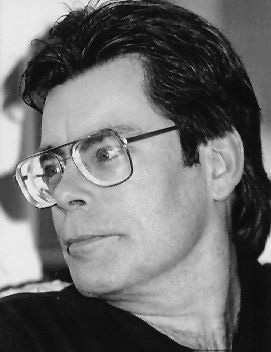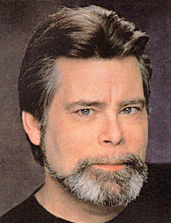KING (b. Sept. 21,
1947, Portland, Maine, U.S.), American novelist and
short-story writer whose many novels and story
collections, and the numberous films adapted from this
large body of work, have established his reputation as
the leading author of horror fictions in contemporary
literature, and with reviving the genre of horror fiction
in the late 20th century.
King graduated from the University of Maine in 1970 with
a bachelor's degree in English. While writing short
stories he supported himself by teaching and working as a
janitor, among other jobs. His first published novel,
Carrie (filmed 1976), about a tormented teenage girl,
Carrie White, gifted with telekinetic powers. Abused by a
fanatically religious mother and ridiculed by her
classmates. After suffering an act of the worst
degradation, she destroys the town with her strange
powers, appeared in 1974 and was an immediate popular
success. Carrie was the first of many novels in which
King blended horror, the macabre, fantasy, and science
fiction.


